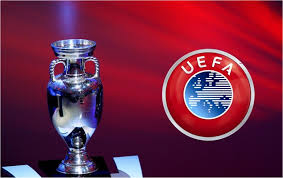By Andrew Warshaw in Geneva
September 18 – Nineteen hopeful countries will learn on Friday which 13 of them have been selected by UEFA to stage the one-off pan-European finals in 2020.
Eight years after UEFA president Michel Platini unveiled his unique plan to celebrate the 60th anniversary of tournament, the Frenchman and his executive committee will announce at an eagerly awaited ceremony which regional groupings of candidates have been successful and which will leave downtown Geneva empty-handed.
After the humiliation of their failed 2006 and 2018 World Cup campaigns, England go into the ballot as firm favourites to land the semifinal and final. Only Munich is up against them for the climax to the tournament and although the Germans were still in contention Thursday evening, speculation was growing that they would downgrade their interest, opting instead for three group games and a knockout match in order to concentrate on staging Euro 2024 on their own.
Unconfirmed rumours said a deal was on the cards with Germany backing England for the showpiece finale to 2020 and the English, in return, supporting Germany for 2024 when Turkey are expected to be their main rivals.
At a news conference on the eve of the ballot, UEFA general secretary Gianni Infantino gave little away, except to reveal there would be four specific voting phases, with several UEFA executive committee members unable to vote while their own countries are still in the running for slots. He also disclosed that seven of the candidates were eligible to stage quarterfinals since they had stadiums with at least a 60,000 capacity.
Wembley and Munich have bid for both packages of matches, while the following are also contenders for three group games plus either a quarterfinal or an earlier knockout game: Azerbaijan (Baku), Belarus (Minsk), Belgium (Brussels), Bulgaria (Sofia), Denmark (Copenhagen), Macedonia (Skopje), Hungary (Budapest), Israel (Jerusalem), Italy (Rome), Netherlands (Amsterdam), Republic of Ireland (Dublin), Romania (Bucharest), Russia (Saint Petersburg), Scotland (Glasgow), Spain (Bilbao), Sweden (Stockholm) and Wales (Cardiff).
Bids will be split into six geographical zones to make it easier for fans to travel to games in what Platini has dubbed “Euros for Europe.”
Not everyone agrees with the innovative concept. Many, including FIFA president Sepp Blatter, believe the tournament will lose its soul but Platini counters that it is the best possible compromise with so few countries able to stage the tournament on their own as a result of it being expanded from 16 to 24 teams starting with France next year.
Whichever cities are chosen, fans and organizers alike are sure to face plenty of challenges. The World Cup in Brazil created a party atmosphere that will live long in the memory but Euro 2020 will be a somewhat disjointed affair even though Platini is confident that by organising it regionally he will be able to produce the required atmosphere.
Fans accustomed to basing themselves in one or two countries for a month of football will have to change their strategy but by spreading the tournament out, the burden on a single nation’s infrastructure – from airports to hotels – will be eased.
Platini has gone on record several times as bemoaning the cost of staging major tournaments, not least in Poland and Ukraine last time out. He believes his pan-European creation will eliminate any prospect of white elephants while giving countries that have never staged a major football event before the opportunity to do so.
As Friday’s vote approached, there was almost as much interest in the cities that will miss out as those likely to be chosen.
Israel’s hopes of bringing games to the 32,000-capacity Teddy Stadium in Jerusalem could be hampered by the fallout from the recent war in Gaza even though Israel today lifted its ban on European games being played in Israel.
The situation in Russia was described in UEFA’s technical report as “increasingly complex” but it would be a surprise if the new St. Petersburg Stadium will be ignored even though Russia is staging the World Cup in 2018 and even though it is embroiled in controversy over its intervention in Ukraine.
Contact the writer of this story at moc.l1744470342labto1744470342ofdlr1744470342owedi1744470342sni@w1744470342ahsra1744470342w.wer1744470342dna1744470342

